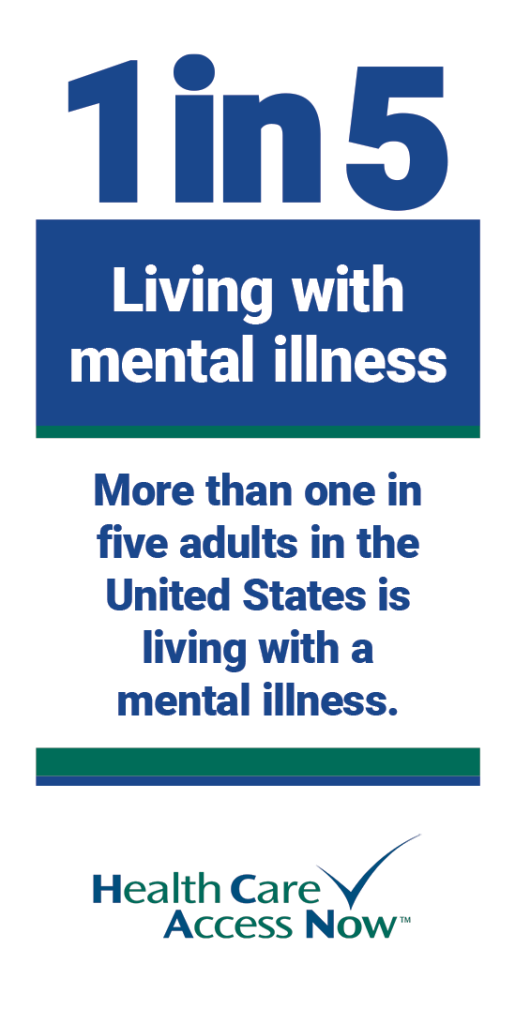Let’s talk about mental health: Reducing the stigma and boosting self-care

More than one in five adults in the United States is living with a mental illness. The same is true for youth ages 13-18.
Cincinnati nonprofit 1N5 takes its name from that statistic. Its mission is to “prevent suicide by erasing the stigma of mental illness and promoting optimal mental wellness.”
Start at the beginning
Normalizing the conversation starts with childhood, Nancy Eigel-Miller, Founder and Director of 1N5 says. “Parents need to start talking about it from the very beginning.” She puts it this way: Because small children are learning to regulate their emotions, it’s important they recognize that their brain is the source of those feelings.
“Saying, ‘This is your brain that’s making this happen. Sometimes our brain isn’t functioning at its highest capacity, and that’s okay,’ teaches kids that big emotions aren’t scary and they happen to everyone.” Starting early minimizes the possibility that symptoms of mental illness go unrecognized and untreated.
And mental illness stigma is lessening among younger people. “It has dramatically decreased for people who are 35 and younger.” However, among certain cultures and in the older generation, the stigma still very much exists.
Eigel-Miller suggests that the institution of the 988* hotline as a resource is a good bridge for people who may otherwise hesitate to reach out for help. “You don’t know who’s on the other end of the phone. They might not even be in your city. That anonymity allows people the freedom to open up and be vulnerable.”
What would happen if you had a broken leg for a decade?
The average length of time between the onset of mental illness symptoms and their treatment is 11 years. Eigel-Miller challenges people to imagine what would happen if you had a broken leg for that long: “You’d probably lose it.”
The longer someone goes without addressing mental illness, the more that illness progresses, which makes it harder to treat. The effects of untreated mental illness can reverberate through all facets of an individual’s life. “It can destroy family relationship, you could lose your job; your existence is altered,” says Eigel-Miller.
People often resist the idea that they are suffering from mental illness. “They think it’s going to go away, that it’s just a moment in time—but if it’s happening over a period of time, that’s not normal.”
She gives the example of test anxiety. “You’re nervous beforehand, but you take the test and the anxiety goes away.” That response is normal. But if you’re still thinking about the test a week afterwards, and it’s interfering with your sleep, then that’s a sign that something else is going on and you should ask for help.
Develop relationships and holding space
Health Care Access Now (HCAN) works directly with historically marginalized community members through its Community Health Workers (CHWs). Mental health issues sometimes go unidentified or untreated among those communities for a variety of reasons, including stigma and lack of adequate health care and cultural competency among providers.
CHWs meet those individuals where they are and help them dismantle the obstacles that prevent them from addressing mental health concerns.
“A lot of work is [also] being done in this space right now [through 1N5],” says Eigel-Miller. “It’s important to develop relationships and be a good listener to understand what they see as barriers.” Then, those issues can be addressed step by step.
Safe people, support systems, and self-care
Eigel-Miller says, “Self-care is not taking a bubble bath or getting your nails done. Those things can make you feel good in the moment, but true self care is about protective factors.”
Spending time with friends and supportive family members, developing a spiritual practice, and being physically active are all examples of self-care that can not only help people maintain their mental health, but also create an environment where mental health issues can be recognized and addressed earlier. 1N5 provides an enormous number of self-care resources on its website.
“Self-care is pretty much the same regardless of diagnosis,” says Eigel-Miller. That means that if you’re suffering from depression, you should care for yourself in the same way you would if you were suffering from anxiety. “Getting enough sleep, going outside and breathing fresh air, meditating: We know there is a definite link to mental wellness if you’re doing these things.”
Self-care is an important component of managing mental illness—but it’s not the only piece of the puzzle. As Eigel-Miller says, “The biggest thing is that we have to normalize the conversation. We all have a brain. We need to treat it the same way we would a heart [or any other essential organ].”
*The 988 hotline is not meant for medical emergencies. If you or someone around you is suicidal, call 911.







